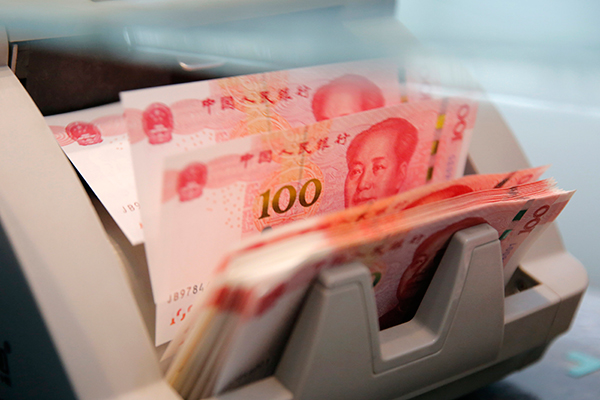Fiscal policy expected to help fend off headwinds
By CHEN JIA | China Daily | Updated: 2019-01-24 07:08

An expanding gap between the Chinese government's income and spending will add deficit pressure this year, when fiscal policy will be the front line of defense against mounting macroeconomic headwinds, experts said.
The government's total spending exceeded 22 trillion yuan ($3.2 trillion) in 2018, a record high and 3.75 trillion yuan greater than its income. Expenditures, however, may keep rising this year, Ministry of Finance officials said at a news conference on Wednesday.
The budgetary fiscal deficit, which could increase to 2.8 percent of GDP this year, is awaiting review and approval by the country's top legislature in March, according to a ministry official who was not authorized to announce the figure. The ratio was set at 2.6 percent in 2018.
With more aggressive tax cuts to take effect soon, the growth of government income will be slower in coming months-down from 6.2 percent in 2018-which will broaden the fiscal deficit, said Li Dawei, deputy head of the ministry's National Treasury Department.
Proactive fiscal policy requires stronger government investment to boost economic growth, especially in technology innovation, environmental protection and social welfare, Li said.
GDP growth further softened in the fourth quarter because of slower export growth and weaker domestic demand, officials said.
With the possibility of the slowdown continuing, economists expect policy support to be further stepped up in response to macroeconomic pressure.
Analysts said multiple factors could limit government plans to boost economic growth, such as if there are difficulties aggressively lifting the fiscal deficit.
Chinese policymakers understand the problems with investments of low efficiency, which come at the cost of a sharp rise in the debt of local governments and State-owned enterprises. "Instead, they are adopting a different style of fiscal stimulus: tax cuts, for both households and corporations," said Zhu Haibin, JPMorgan chief China economist and head of China equity strategy.
A JPMorgan report forecast a further value-added tax rate reduction, averaging 2 percentage points, in the first quarter, which could save the corporate sector around 700 billion yuan or 0.7 percent of GDP.
The overall tax cut package could reach 2 trillion yuan, or 2 percent of GDP in 2019, including higher tax rebates for exports and targeted corporate income tax reduction for small businesses, it said.
The government's tax income growth slowed to 8.3 percent in 2018 from 10.7 a year earlier, to a total of 15.64 trillion yuan, mainly because of the tax reduction campaign, the Finance Ministry said on Wednesday.
In the meantime, financial regulators reported they were satisfied with results from efforts to control government debt. They said the government debt level, measured by a ratio of debt to GDP, was much lower than the internationally recognized "warning line" for debt.
The government debt ratio was reported at 37 percent, moderately up from 36.2 percent by the end of 2017. Local government debt outstanding reached 18.39 trillion yuan.
The Finance Ministry will further strengthen debt management this year to prevent risks from local government bonds and to tighten control on contingent liabilities or "hidden" debt, said Hao Lei, head of the ministry's Budget Department.
























